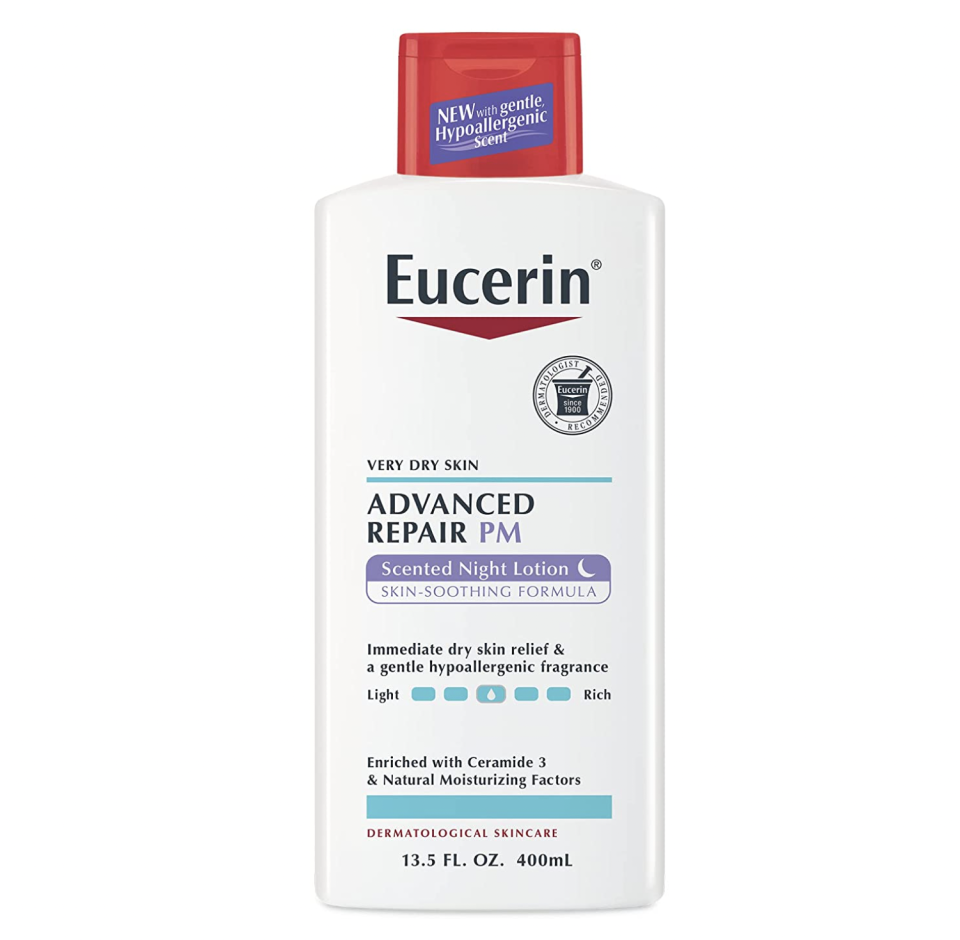What Is Your Skin Barrier and How Can You Keep It Protected?
Dotdash Meredith and Yahoo Inc. may earn commission or revenue on some items through the links below.

Getty Images
As skin care enthusiasts, we're obsessed with knowing all about our product's active ingredients, trying out new formulas and modifying our routine—but how much is too much of a good thing?
While a new chemical exfoliant or powerful serum may lead to glowy, clear skin, overdoing it in your routine may lead to a damaged barrier, which can make your skin more vulnerable to the very things you're trying to protect it from.
What exactly is the skin barrier and how can you keep yours in tip-top shape? Keep reading for our full deep dive into this crucial part of healthy skin.

Getty Images
What is your skin barrier?
Our skin is made up of layers and the outermost one is the stratum corneum, or the skin barrier.
Essentially, it blocks out all the bad stuff, like environmental aggressors, and keeps in all the good, like moisture.
This barrier is made of all the cells that keep our skin looking and feeling its best, from ceramides to fatty acids.
How does it get damaged?
Your skin barrier is pretty tough, but it's not invincible. UV damage, smoking and pollution are among the most harmful, but even missing out on a few extra hours of sleep can make a negative impact.
As we age, our skin will also naturally lose its ability to keep in moisture, which is why it's important to adopt a skin care routine from a young age.
While it's impossible to fully avoid skin barrier damage from external factors, it's much easier to avoid if you know how skin care ingredients affect it. Over-exfoliating is one of the most common and avoidable sources of barrier damage, especially when done with gritty exfoliators.

Getty Images
How can I tell if my barrier is damaged?
Look for signs of unusual dryness, extra sensitivity or unexpected irritation. If your skin is reacting differently than it normally does to products you've been using for a long time, that's a sign the barrier may be compromised.
How can I repair it?
Thankfully, most barrier damage can be reversed in around two weeks, especially if you spot it quickly.
Start by removing any exfoliators, both chemical and physical, as well as retinol and vitamin c from your routine for the time being. This step is key to getting your skin back to normal.
Then, focus your skin care on gentle cleansing and rich creams that will lock in moisture. If you're going outside, don't forget SPF to prevent further damage.
How do I keep it healthy long-term?
Once your skin is back to normal (or if it wasn't damaged in the first place), make sure to keep exfoliation and harsh, active ingredients at arm's length.
While they may be crucial for achieving your skin goals, they are best used sparingly. When using products with retinol or strong acids, consider using each once a week, and always on different days to avoid flare-ups.
Then, lean on hydrating, gentle skin care products that prioritize barrier health with ceramides, healthy oils, squalane and more. See below for some of our favorites.
Skin Essential

Courtesy of La Roche-Posay
La Roche-Posay, Cicaplast Balm B5 For Dry Skin, $14.99, laroche-posay.us
Rich and Creamy

Courtesy of Glossier
Glossier, After Baume $28, glossier.com
Luxe Pick

Courtesy of Skinfix
Skinfix, Barrier+ Triple Lipid-Peptide Face Cream, $52, sephora.com
All Over Care

Courtesy of Eucerin
Eucerin, Advanced Repair Night Lotion, $8.39, amazon.com

